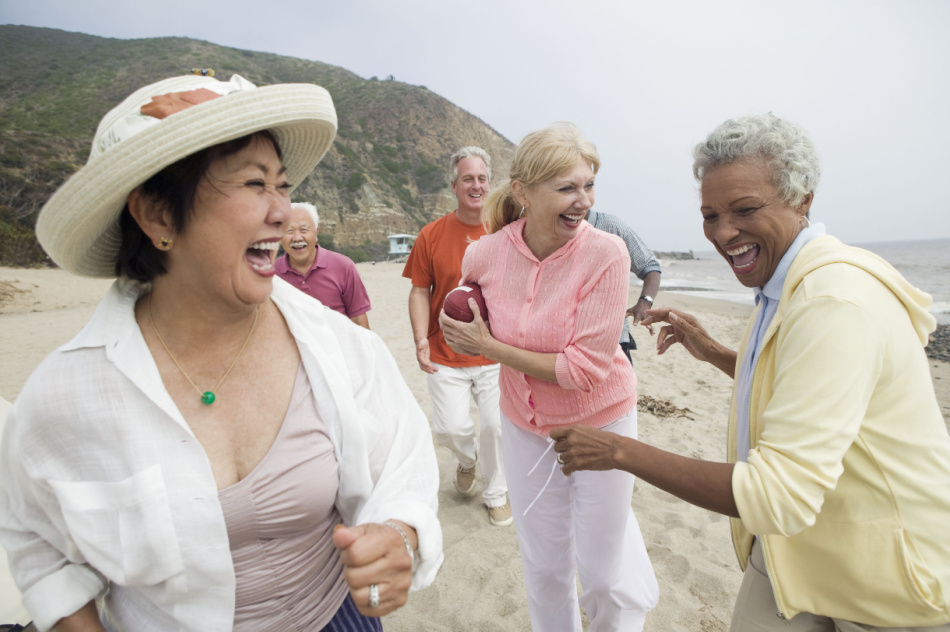One of the more startling findings in relationship science is that both romantic love and platonic friendship, though very different relationships, typically begin the same way — with a spark.
But what comes next? According to relationship specialists, we frequently prioritize our romantic partners over our friends. An increasing amount of evidence, however, suggests that friendships are as crucial to our health as, say, a balanced diet and plenty of sleep.
“We’ve always had this hierarchy of love,” said Marisa G. Franco, a University of Maryland professor and author of “Platonic: How The Science of Attachment Can Help You Make — and Keep — Friends.” “We are constantly fed the message that the romantic relationship is the only one that matters.”
It turns out that platonic love outperforms passionate love in several respects. People who have good friendships have better mental health and, according to studies, better physical health. Large social networks, according to researchers, reduce our risk of premature death more than exercise or diet alone.
A six-year study of 736 middle-aged Swedish males discovered that having a life partner had no effect on the likelihood of having a heart attack or dying from coronary heart disease — but having friends did. According to a 10-year Australian study, older adults with many friends were 22 percent less likely to die during the study period than those with few friends. It is worth noting that having a social network of children and relatives has no effect on survival rates.
Franco said the neighborhood needs to feel whole. “Being around different people brings out different sides of our own identity.”
Why are friends good for our health?
There are numerous views regarding the relationship between friendship and improved health. Part of the effect could be attributed to the fact that healthy people find it easier to establish acquaintances. A strong social network may indicate that a person has better access to medical treatment. Furthermore, someone with more friends may just have a stronger support network to arrange a ride to the doctor’s office.
However, there is a psychological consequence of friendship that most certainly plays a role. Friends assist us in dealing with stress. Many respondents were terrified by the notion of climbing a steep hill in one research at the University of Virginia. However, researchers discovered that when people were standing close to a friend, they judged the slope as less difficult than when they were alone.
According to brain imaging research, friendship impacts brain systems related to reward, stress, and negative emotions, explaining why social interaction enhances mental health and well-being.
Friendship appears to influence our immunological response. 276 healthy individuals were given nose drops carrying a cold virus in one exceptional study. Individuals with a wide social network were less likely to acquire cold symptoms.
According to Franco, the word “platonic love” was coined to express Plato’s vision of love “so powerful it transcended the physical.”
How to make new friends and keep the old
Take the initiative
When meeting people, trust your instincts. We’re great at spotting new friends (remember that spark). And, assume people like you. Franco stated we underestimate how well people view us.
“People like you more than you think,” Franco added. “I know it’s scary to reach out but it’s likely to end more positively than your brain is assuming.”
Start with a text
Begin by going through your phone and sending a text message to an old friend with whom you’ve been meaning to reconnect.
Show your gratitude
If a potential buddy asks you out for coffee or pizza, Franco suggests telling them how grateful you are that they reached out and how much you appreciate their effort.
A University of Utah study invited 70 college freshmen to keep a list of encounters with new acquaintances, such as going to a movie or calling to say hi. After three months, affectionate pairs were more likely to become close friendships.
“When we don’t express affection, we are at risk of losing the friendship itself,” Franco said.
Invite friends to things you’ve already planned
If it’s difficult to find time for friends, Franco suggests thinking about the things you already have in your schedule and inviting a friend. You may ask someone to join you the next time you work out at the gym, for example.
Join a book club, take a class or play a sport
Friendship may result from frequent contact with like-minded people. A University of Maryland study indicated that police academy students who sat together became close friends. Researchers call it “propinquity,” or closeness. Franco said it proves “friendship isn’t magical.”












